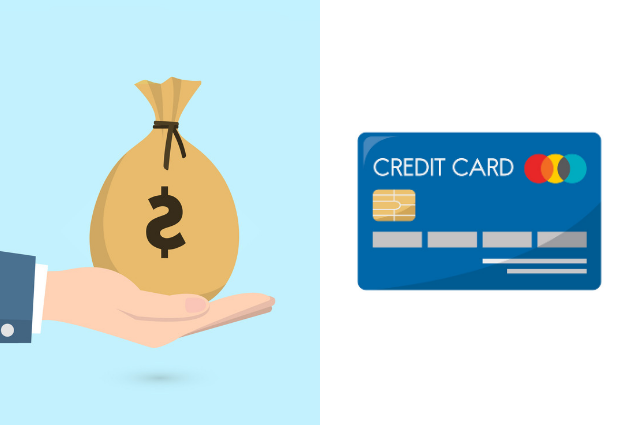When you’re investing in commercial real estate, it is of prime importance to be educated about what you’re getting into. Basing your decisions on what your old family friend or the smart dude in the neighborhood isn’t a brilliant thing to do, as investment decisions can determine the amount of money you’ll make or lose. Borrowing loans to fund your commercial real estate properties is one of the basic things when you’ll be investing.
With a plethora of loan options available in the market, it can be daunting to decide what loan to borrow. The two common and basic types of loans are hard money loans and soft money loans. Read on this blog to know the nature of these loans, their pros and cons, and some real insights on how to decide the right type of loan for any given situation. Read on!
What are soft money loans and hard money loans?
Soft money loans
Soft money loans are a traditional type of loans with long terms and below market interest rates. They are provided by certified lending institutions and have terms, ranging from 2 years to 6 to 8 years. That is a long repayment period.
The best examples for soft money loans are automobile loans, which has surprisingly long repayment periods with lower rates of interest. These loans are thus, best suited for making the purchases of long term utility assets like cars, heavy furniture, etc.
Hard money loans
On the flip side, Hard money loans are rather short term loans provided by private money lenders, for short terms of time with a higher rate of interest. Hard money loans are often given on the basis of the value of the property given as collateral over and above the credit-worthiness of the borrower.
The best examples for hard money loans would be the commercial Bridge loans given by private money lenders used mainly for flipping the properties, making repairs and renovations to the existing property, or providing necessary or immediate funding to a project until a more permanent form of financing is made available.
The major difference between hard money loans and soft money loans is – The Credit Score.
Soft money loans are provided considering the credit score of the borrower largely. It requires the borrower not only to pledge the property as collateral for the loan approval but also to have a high credit score. Most certified lending institutions that provide soft money loans look for no less than a 580 credit score to process the loan request. Thus, it is best suited only in cases where the borrower has a brilliant credit score and is also willing to pledge the property as collateral. That makes it quite clear that these type of loans are best suited for buying properties or assets that are more of personal nature and are going to be long term. The rule of thumb here is, the higher the credit score, the lower the interest rates and the longer the repayment periods.
For hard money loans, on the other hand, the credit score of the borrower is not of prime importance. Hard money loan lenders look for the value of the property versus the value of the credit score of the borrower. Thus, these type of loans makes the perfect fit for people who are looking for funds to trade in real estate properties, especially for those who flip properties from time to time. In a nutshell – Hard money lenders look for the quality of the property versus the credit score. Plus, they come with higher rates of interest as they’re made available in fewer periods.
That was the one significant difference between hard money loans and soft money loans. Further on, here are some major pros and cons of the two types of loans which will give you a crystal clear picture of the nature of these loans on the whole.
Pros and cons of hard money loans and soft money loans
Pros of soft money loans
• Soft money loans have lower than market interest rates, depending mainly on the credit score of the borrower. The rule of thumb being, better the credit score, lower the interest rates.
• Soft money loans move on to become a part of your credit history and thus, is one of the easiest ways to improve your credit score. This tip is suggested for borrowers who are looking to repair or better their credit scores.
• Soft money loans can sometimes fun up-to as much as 90% of the LTV ratio of the commercial real estate property.
• Soft money loans come with more extended periods of repayment terms. They are very flexible and won’t be much of a big burden on the working capital or running cash flow of the borrower.
Cons of soft money loans
• Approval of soft money loans takes a long period of time, say 14 to 20 days, varying from one lending institution to another. Thus, it makes it a bad option when someone is looking for funding on a more immediate basis.
• Approval of soft money loans takes a fair amount of paperwork. The paperwork procedures are not something everybody loves to indulge in, and soft money loans require lots of paperwork, and you might have to run around the lending institutions, with your documents.
• Soft money loans will be impossible to procure if one has a poor credit score. Certified lending institutions that provide soft loans look for a credit score of above 580 to even consider approving the loan. So, if you have a poor credit score, it is impossible to procure a soft money loan.
• You might have to turn over some assets and provide them as collateral for your soft money loan request to be processed. The value they’re looking for or expecting will depend on your credit score again.
Pros of Hard Money loans
• Hard money loans do not require you to have a excellent credit score. The hard money lenders are somewhat more interested in the value of the property over your credit score, and that’s a huge advantage, especially if you’re looking to invest for more extended periods.
• Hard money loans take much lesser time to process, say 3 to 4 days versus the soft money loans that take, 10 to 15 days. Thus, Hard money loans are a big go-to if you’re looking for immediate financing.
• Hard money loans will not require you to make large down payments. So, they’re the best loans to obtain when you’re running low on cash and want a short form of financing in a lesser time period.
• Hard money loans are considered as a boon to the commercial real estate investors where borrowers have a poor financial history or have an incredibly poor credit score.
Cons of Hard Money Loans
• The rates of interest on hard money loans are higher as compared to its counterpart, soft money loans.
• The repayment policies are more stringent as compared to the repayment policies of soft money loans. Hard money lenders will have their set rules and regulations for repayments, and they’re quite strict about their rules. Thus, you’ll not find your hard money loans with a flexible or a lenient repayment policies, and it’s of prime importance for you to repay your loans on time, every time.
Final words
Hard money loans or soft money loans? The answer largely depends on the purpose of your loan application. If you’re looking for funding to buy a personal property that will be utilized by you in the long run, instead of reselling it, plus you have an incredible credit score (above 580), then soft money loans is a wiser option for you.
However, if you’re looking for a loan that will pay for an immediate financial need, of a short term nature, procuring hard money loans over soft money loans would be your best bet. If you’re someone who is planning to invest in the commercial real estate market, Hard money loans make the best sense for you. The most significant advantage of hard money loans for real estate investors is that they do not require you to have an astonishing credit score and they are made available within a short period.
They are referred to as the boon to the commercial real estate world for the very reason that they help borrowers who have a poor financial history and thus, encourage beginners or amateurs to enter the world of real estate financing! So, if you’re looking to be a master real estate investor, and are taking baby steps in this regard, exploring hard money loans is definitely something you should do!





